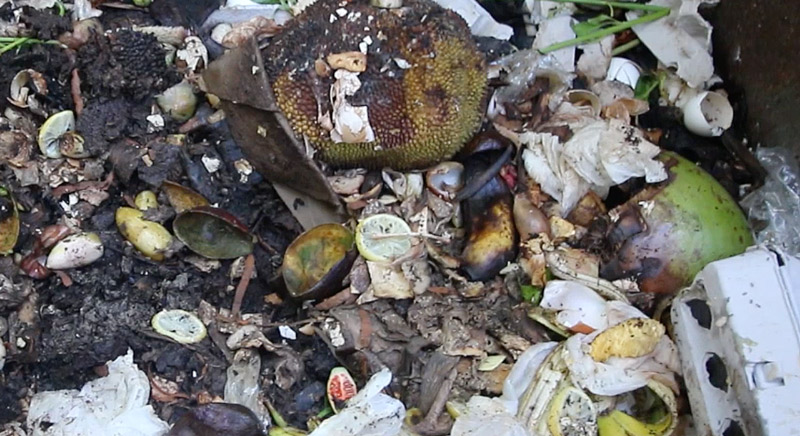D writes:
“I just watched one of your composting videos, which Marjory Wildcraft had put up.
You stated anything could be composted. What about bleached paper towel?
paper with ink? (including cardboard, and egg cartons) Do we need to be
careful about the toxins, which might then go into the otherwise organic
plants?
Also at one point I read garlic and onion shouldn’t be put into compost,
because they were too acidic or something like that. Is this actually true?”
I replied:
“I don’t worry about the potential toxins – most inks are now non-toxic. Composting also renders a lot of things inert.
If we were to be complete purists, we could hardly compost anything due to pesticides, environmental contaminants, herbicides, etc.
I compost everything I can. Garlic and onions are fine too. People like to add a lot of rules that aren’t necessary – nature is designed to be an amazing recycler. The purifying and transforming work of fungi and bacteria is amazing.”
I now realize I said “amazing” twice, in two consecutive sentences. Amazing!
There is a risk of trying to find absolute purity in a fallen and broken world. Almost everything has some sort of contaminant in it. We do the best with what we have.
Don’t worry too much unless you know something is full of lead or aminopyralid or something. Compost everything.


6 comments
Amazing.
I actually did that with actually the other day.
Actually!
Dear Mr. The Good,
What say you about composting paper with laser toner rather than inks? To my knowledge, toner is basically microplastic beads statically attracted to and then melted onto paper and microplastics freak me out quite a bit.
I’d love to make use of my piles of office paper and junk mail but there’s not a whole lot of info out there on the subject.
A few years ago, before I discovered David the Good, I read a book on composting (I won’t name names) and it listed a bunch of organic (plant- and animal-based) materials that shouldn’t be put in compost. Things like meat, cheese, etc. Then it had a list of things you COULD put in compost, including things like biosolids, lint from your clothes drier, and even mine tailings and certain other types of industrial waste. And I thought, since when are excreted pharmaceutical drugs, polyester fiber, and heavy metals more useful additions to a garden than nitrogen-rich meat and probiotic dairy?
I guess I am a litlte squeamish about contaminants. I see a lot of people using cardboard as weed-blockers, and I’ve never liked cardboard because of the ink and the glue (although I have used plain brown packing paper). I don’t trust that anything is “non-toxic” just because the manufacturers say it is. I agree that you have to compromise on some things because there are toxins in the very air we breathe, so it’s impossible to be a purist. But I’m also in a position right now where I can easily get more woodchips than I could ever possibly need, so I can afford to turn up my nose at cardboard boxes and paper printed with laser jet ink. What youre’ willing to put in your compost depends a lot on what materials are hardest to come by where you garden.
Yes, definitely.
My concern is PFAS in recycled paper products. It’s been found in toilet paper w/ recycled content. Apparently it is enough to cause concern for being a contamination source for wastewater.
https://www.acs.org/pressroom/presspacs/2023/march/toilet-paper-is-an-unexpected-source-of-pfas-in-wastewater.html
Plants can take up some PFAS; tends to concentrate in tomatoes and broccoli & cauliflower florets, IIRC
https://doi.org/10.1016/j.chemosphere.2017.12.179
Comments are closed.